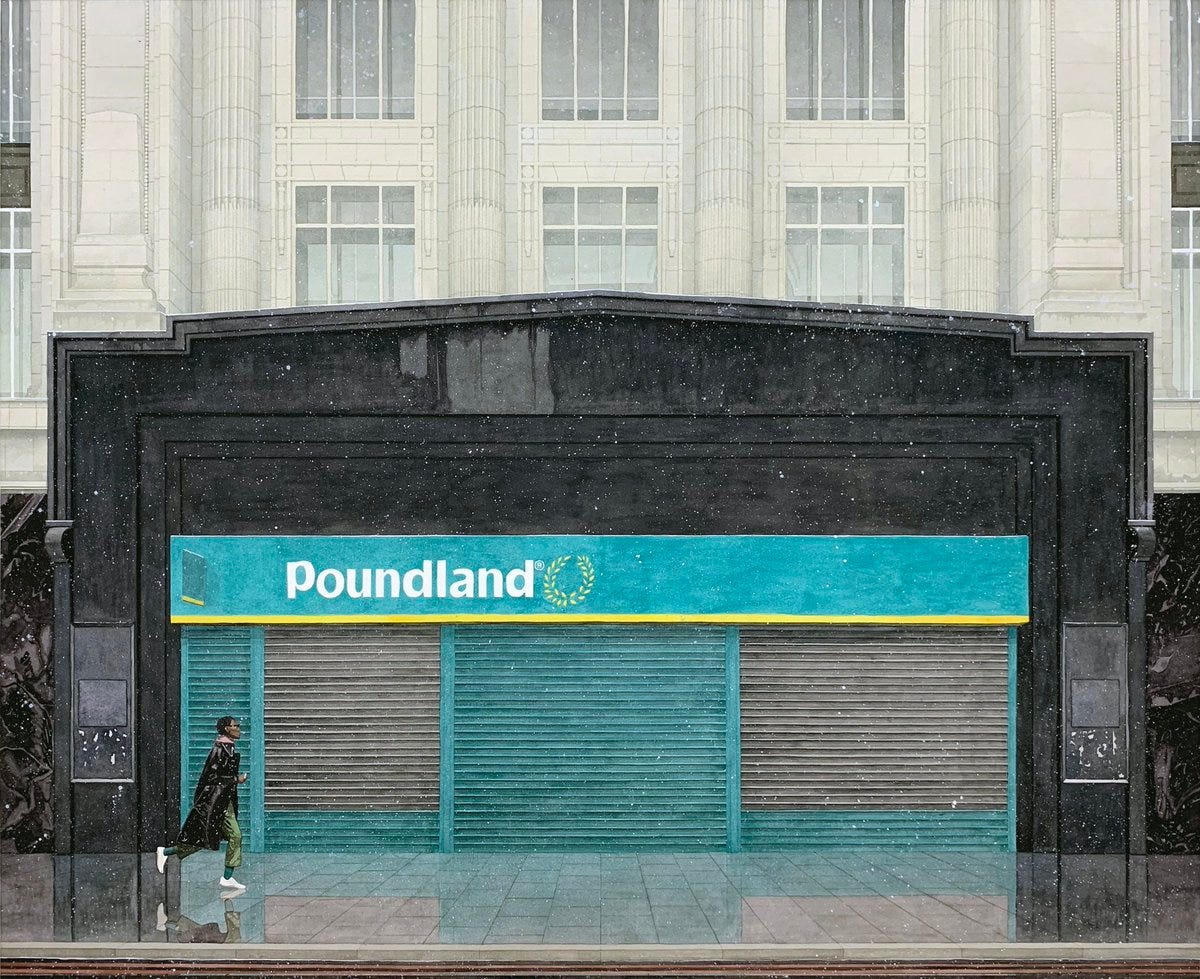Rattle Bag
History, learning, screw-ups, and suitcase-packing

Welcome to everyone who joined in the last week. Sometimes The Ruffian is an essay; other times, like today, it’s a rattle bag of goodies. Links to recent popular posts directly below, then a note on last week’s piece, and then the Rattle Bag, which is for paid subscribers only. If you haven’t signed up for a paid sub, it’s very easy and very inexpensive…
Catch-up service:
- Thirty-One Insights Into Art, Writing and the Creative Process
- The Biden Conundrum
- John and Paul - news on my next book
- How to process news of the Israel-Hamas conflict
- The best reason to believe Woody Allen is innocent is the simplest one
‘The End of History’: An update
There was a very big response to last week’s post on bullshit history - many thanks for sharing, subscribing, and writing.
I want to pick out one email in particular, from an historian at a prestigious university (he asked to stay anon for now although he intends to go public on this at some point). Extract here, with permission:
I agree with every word you have written, and have been watching this shameful episode unfold with mounting horror. As you say, if this continues it will completely undermine any residual respect the general public might have for academic history as a discipline…
I thought Bulstrode's original article provided worrying evidence of a decline of basic historical logic - it is full of non-sequiturs and dreamy associations of things for which there is no evidence that any real connection existed at all. However it was just possible to believe that it wasn’t a product of deliberate academic misconduct so much as poor historical practice, wishful thinking and the temptations of 'impact' and historical celebrity…I had thought, naively, that the polite and well-reasoned criticism by Howes and Jelf’s review of her evidence would produce at least a partial retraction of the article, and an admission of carelessness and misreading of the evidence…What we have seen instead alarms me far more than the original article did. The editors of the journal that was foolish enough to publish it, and who would share in the shame of its retraction, were hardly the best people to conduct an impartial evaluation of its worth, but even so what they have produced is jaw-droppingly awful - a combination of active intellectual dishonesty, obfuscatory drivel and political posturing.
The statement from the British Society for the History of Science is even more shocking, partly because it purports to speak for an entire field, but also because they have nothing to offer but arguments from authority – simultaneously intellectually feeble and menacing…Much as the journal editors did they are effectively warning all those who criticised Bulstrode’s work to keep off the grass, or face accusations of racism. I find that quite astonishing in what is meant to be a representative academic body…[T]here are some academic historians who are as horrified by this as you are…I don’t see why it should only be junior, untenured scholars and the retired who put their heads above the parapet on this issue. I have also been writing to those historians I know who do work in this or related areas. What I earnestly hope is that there will be some kind of organised response from people who cannot simply be dismissed as ‘History Reclaimed’ reactionaries.
If you’re a historian and you’d like to take part in such a response, hit ‘reply’ and I’ll put you in touch.
After the jump: a few more thoughts on the History debate, plus, in this week’s accidentally education-centric Rattle Bag, the following:
Is there any such thing as a fast learner? (Discussion of a new study which says no).
Can ChatGPT help us rediscover the humane virtues of education?
What’s the track record of ceasefires, historically speaking?
How to pack a suitcase
The story of a screw-up at work that will make your screw-ups feel trivial.
The connection between Brazilian psychedelia and modern football tactics.
Some insanely good singing.
And more…



